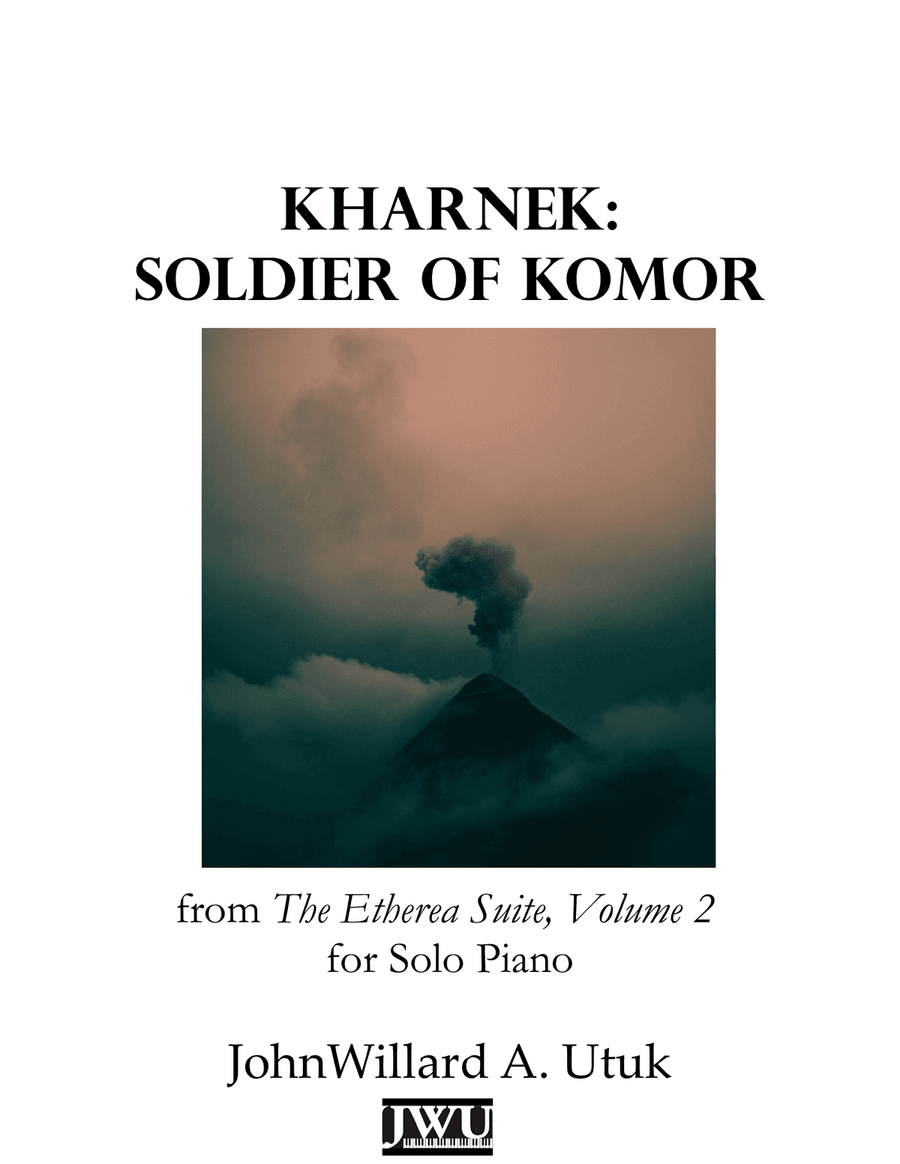
Kharnek: Soldier of Komor
This solo explores musical concepts like octaves, voicing, dynamic extremes, contrast, intricate left-hand passagework, attention to nuanced storytelling, and musical (and physical!) pacing. The piece has a musical cryptogram hidden within it, spelling out Kharnek's name as a main melody.
Piano technique challenges include keeping an expressive, yet not overly harsh left hand, creating musical tension and contrast with written dynamics, and conveying a musical narrative of the piece overall. The B section provides relief from the somber energy, where sensitivity can be applied.
Average Performance Time 6:30. A great technical movement, allowing for varied dynamic expression and virtuosity. Recommended for advanced students, and those needing supplements to left-hand centered repertoire.
Get the
Sheet Music
Era
Modern
Difficulty Level
Advanced
Moods
Angry,
Dark,
Dramatic,
Enigmatic,
Intriguing,
Melancholic,
Mysterious,
Passionate,
Stormy,
Triumphant
Styles
Character Piece,
Contemporary,
Film,
Modern,
Romantic,
Video Game
Themes
Adventure,
Fantasy,
Magic,
Medieval,
Military,
Night,
Sneaking,
Spies,
Storm,
War
Video
Want to watch videos?
YouTube videos use cookies to show you personalized ads.
To watch videos, you must consent to Marketing Cookies.
Change Cookie PreferencesLearn more in our Cookie Policy.
Loading Elements...
Details
Title
Kharnek: Soldier of Komor
Composer
Year
2025
Instrumentation
Solo Piano
Key Signature
D Minor
Time Signature
4/4
# of Measures
115
Teacher Duet
No
Lyrics
No
Student Ages
Adults,
Teens
Student Types
Ambitious Students,
Students About to Quit,
Unmotivated Students
Teaching Tips
Choose Good Fingerings,
Demonstrate,
Focus On Expressive Markings,
Hands Separate Practice,
Help Student Achieve Sensitive and Musical Playing,
Highlight Dynamic Contrasts,
Highlight the Contrast in Articulation,
Highlight the Contrasting Characters of Each Section,
Make Rhythmic Exercises Using Difficult Rhythms,
Map Out Hand Position Shifts,
Play Small Segments,
Play Without Pedal